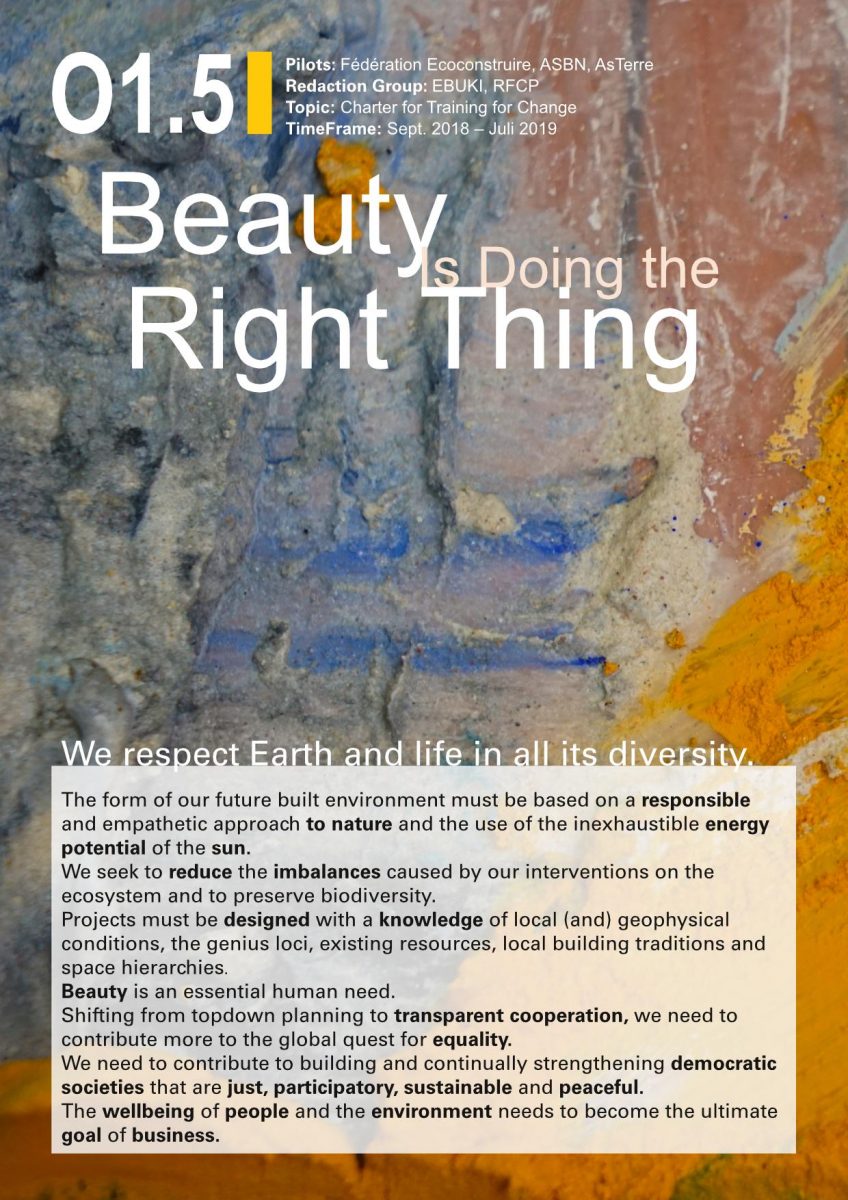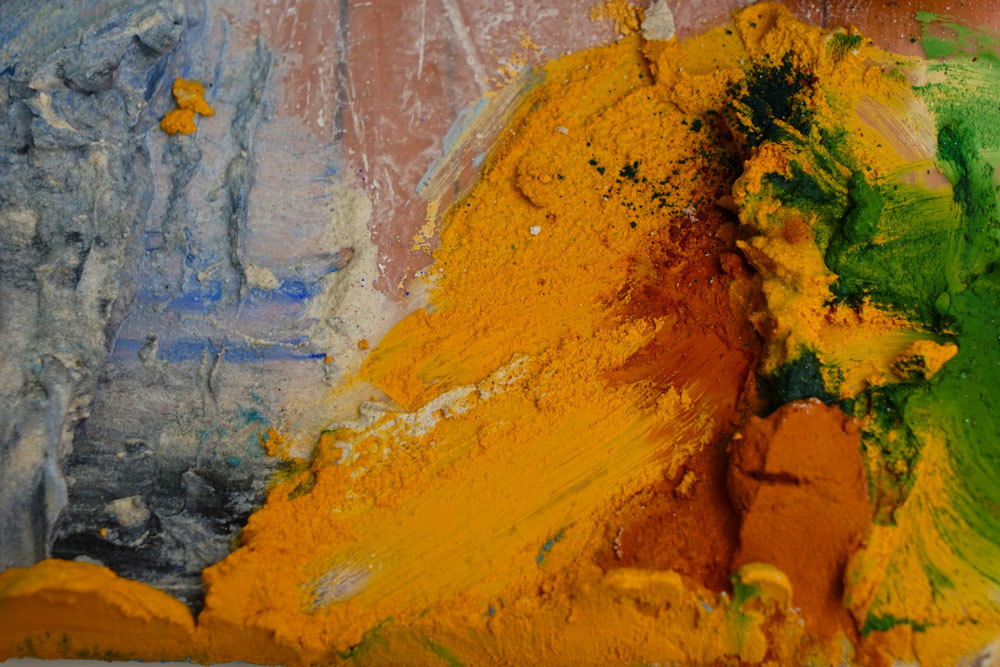
Beauty Is Doing the Right Thing
Back to the roots (foundations, in our case). And no, O1.5 isn’t done at all. These 12 points are merely a super condensed abstract of the results of O1.1 (with very few additions). Well worth to think about, though…
1. The form of our future built environment must be based on a responsible and empathetic approach to nature and the use of the inexhaustible energy potential of the sun. We respect, in the act of building, the logic of the living and the cordial bonds existing between the human being and nature. We respect Earth and life in all its diversity.
2. When using, exploiting, transporting, and processing natural resources for construction purposes, when assembling and dismantling building components, we seek to reduce the imbalances caused by our interventions on the ecosystem and to preserve biodiversity.
3. The energy content and the life cycle of materials must be taken into account, recycling, reuse or ecologically sustainable disposal should be guaranteed.
4. Architects and engineers must design their projects with a knowledge of local (and) geophysical conditions, the genius loci, existing resources, local building traditions and space hierarchies.
5. Beauty is an essential human need, linked strongly to dignity. We must strive for an authentic harmony that resonates with people, the genius loci and their territory.
6. “Something impractical can never be beautiful.” (Otto Wagner)
7. It should be possible to meet comfort requirements (temperature, air, noise, light …) largely through the design of the building by incorporating passive measures with a direct effect.
8. In towns and cities, especially in public spaces, steps should be taken to improve the urban climate, temperature control, wind protection and the specific heating or cooling of these spaces.
9. We must produce spaces that counter exploitation, control and alienation, whether in urban or rural landscapes. With all our expertise, creativity and power, shifting from topdown planning to transparent cooperation, we need to contribute more to the global quest for equality.
10. We need to contribute to building and continually strengthening democratic societies that are just, participatory, sustainable and peaceful.
11. We need to eliminate all direct and indirect subsidies for activities harmful to the environment and the common good, in particular in the energy and transport sectors, the manufacturing industry, the financial sector and the agriculture.
12. The wellbeing of people and the environment needs to become the ultimate goal of business.
European Charter for Solar Energy in Architecture and Urban Planning (1996) – Link
Charte du Reseau Écobâtir – Link
Earth Charter (UN Conference on Environment and Development, 1992) – Link
Laufen Manifesto for a Humane Design Culture (2013) – Link
Manifest: Exit from the Mega Machine (Fabian Scheidler, 2017) – Link
Economy for the Common Good (2010) – Link
Latest update of this page: 2018-10-23

